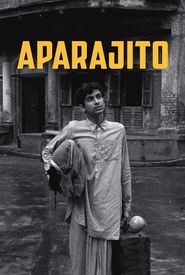Santi Gupta, an illustrious and accomplished actress of Indian cinema, whose outstanding career has left a lasting and profound impact on the world of entertainment, came into being in the year 1900, within the vibrant and culturally rich city of Calcutta, which at that time was a part of the Bengal Presidency, a region that was under the administrative jurisdiction of the British India territory, thereby being shaped by the complex interplay of cultural influences and historical events that defined the era.
The luminary figure, whose artistic trajectory left an indelible imprint on the Indian film industry, has been immortalized on the silver screen through a plethora of remarkable cinematic endeavors, with one of her most iconic and widely acclaimed performances being in the 1956 release "Aparajito", a cinematic masterpiece that continues to be revered and celebrated to this day, a testament to her enduring legacy in the realm of Indian cinema.
Notably, her acting career was a significant and enduring presence in the early decades of Indian cinema, with her early roles including the 1931 film "Chorekanta", a notable milestone in her illustrious career, and the 1932 film "Krishnakanter Will", which further showcased her remarkable range and versatility as an actress, leaving an indelible mark on the industry.
Santi Gupta's life, a testament to the complexities and intricacies of human experience, drew to a close on the eleventh day of August, 1973, marking the end of an extraordinary odyssey that had unfolded like a rich tapestry, woven from the threads of triumph and tragedy, in the very same metropolitan city where her remarkable story had first taken root, a city that had undergone a transformation of its own, having been rechristened as Calcutta, a bustling metropolis nestled within the eastern Indian state of West Bengal, its vibrant energy and cultural heritage a reflection of the diverse and dynamic world that lay beyond its borders.
















